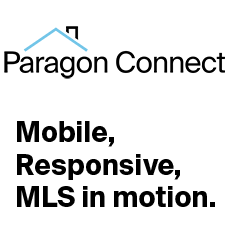We can all agree that raising the level of professionalism in the real estate industry is a good thing – absolutely necessary, even. But how do we get there? And who’s responsible for elevating the REALTOR brand? With Bob Goldberg assuming leadership of NAR on August 1, there is much discussion around what he can do to be an agent of change in the industry.
The gloves come off today as Rob and Greg debate the validity of the NAR CEO selection process and the best way to go about ridding the industry of incompetent, unethical agents. They discuss the strengths Bob brings to the table, how his leadership may facilitate cooperation among key players, and the likelihood of substantial policy change with Bob at the helm.
Listen in as Greg and Rob get fired up arguing who’s responsible for making the REALTOR brand meaningful. It is up to NAR to raise standards and differentiate between REALTORS and licensees? Or do brokers need to be held to a higher ideal when it comes to recruiting, hiring and training agents? Whether you’re Team Rob or Team Greg on this one, Bob has his work cut out for him as he takes over NAR this month.
What’s Discussed:
Greg’s experience working with Bob through eNeighborhoods
NAR’s decision to choose someone from inside the organization
Greg’s sense of Bob as a leader
Rob’s take that hiring Bob may have been a ‘done deal’
Greg’s argument that employing a world-renowned recruiting company is ‘thorough’ as opposed to ‘clueless’
Why Rob contends that NAR should have named Bob as successor two years ago
How the NAR membership might have reacted to naming Bob as successor without selection process
How the interview process affords the opportunity for upfront conversation
Greg’s belief in the validity of the selection process
Why a succession plan is more feasible in the corporate world vs. a member-driven organization
Rob’s frustration with the lack of transparency demonstrated by NAR leadership
Greg’s assessment of how things will change with Bob at the helm of NAR
– Shift in tone
– Capacity to facilitate cooperation
Rob’s assertion that conflict in the industry is about policy rather than tone
Rob’s skepticism re: the probability of change in NAR policy
The relationship between personnel and policy
Greg’s assertion that bureaucracy comes from the association side rather than staff
The challenges Bob faces moving forward
– Elevating REALTOR brand
– Incompetent, unethical agents
Greg’s position that brokers are complicit in hiring unqualified agents
Rob’s counter that agents are not employees
– Only Redfin hires employee agents
– Agent pays broker, not vice versa
– Recruiting agents = sales (not hiring)
Why Rob finds it remarkable that any brokers institute standards
How NAR’s code of ethics runs counter to their acceptance of anyone with a license
Rob’s proposal regarding policy changes that would make the REALTOR brand meaningful
– MLS access no longer tied to membership
– Association staff allowed to take part in ethics hearings
– Remove 1099 exemption for real estate agents
Resources:
Rob’s ‘Bob Goldberg Era’ Blog
Rob’s Response to Bill Brown’s Comment
NAR DANGER Report
Connect with Rob and Greg:



